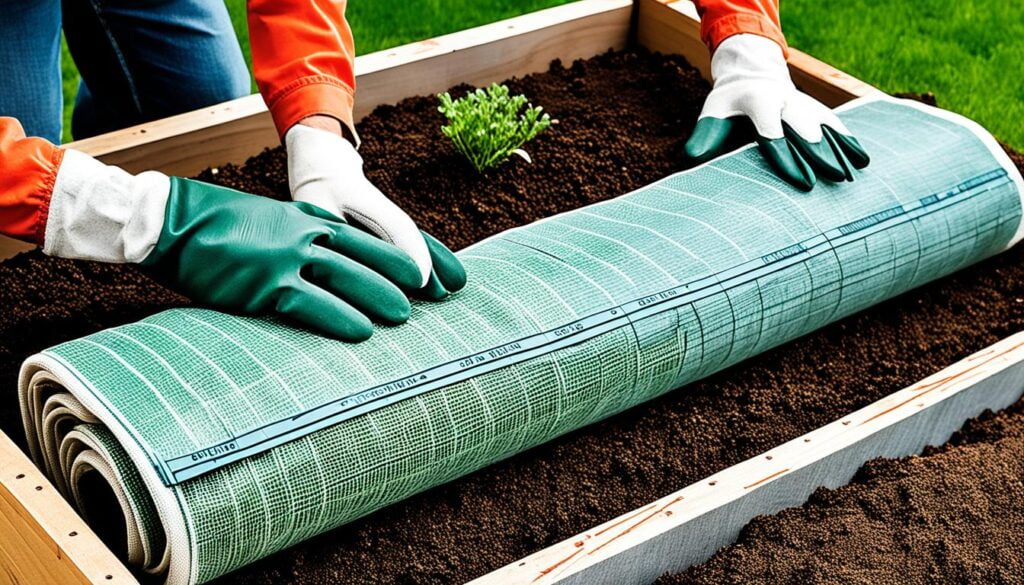In terms of tackling home development or outside tasks, hardware cloth is one of the maximum versatile substances you could use. Whether you’re a DIY fanatic or a pro gardener, this strong mesh has infinite programs. From securing areas of your garden to creating cages or fences, hardware cloth presents durability and versatility in lots of settings. Permit’s dive into its uses, blessings, and the nice way to incorporate it into your next assignment.
What is Hardware Cloth?
Hardware fabric is a kind of twine mesh made from metallic or stainless steel, regarded for its grid-like pattern. Unlike conventional fabric, this material is inflexible and is used typically in production and landscaping. It is available in a diffusion of gauges and sizes, making it appropriate for a huge range of packages.
Commonly, hardware fabric is electrified, which means that it is coated with zinc to prevent rusting. This makes it ideal for outdoor use, especially in areas exposed to moisture. It’s also available in different bureaucracies such as welded wire, woven twine, and occasionally plastic-coated wire for extra electricity and durability.
Common Uses of Hardware Cloth
Hardware material is pretty flexible, with multiple makes use of which could decorate your home, garden, and even small creation projects. Right here are a number of its most famous packages:
- Garden Fencing
- One of the maximum common uses of hardware cloth is for lawn fencing. The mesh is small enough to hold pests like rodents, rabbits, and squirrels away while allowing air and daylight to skip through. Gardeners frequently use it to create a barrier round vegetable patches or flower beds.
- Animal Enclosures
- Whether you’re building a bird coop, a rabbit hutch, or a small aviary, hardware cloth is the precise cloth for developing at-ease animal enclosures. Its strength ensures that predators can’t smash in, at the same time as the small grid keeps the animals competently interior.
- Home Repairs
- Hardware cloth also can be utilized in domestic maintenance. It’s frequently located over vents, home windows, or crawlspaces to prevent birds and small animals from getting interior. You may also use it to boost partitions, ceilings, or roofs in certain production projects.
- Composting Bins
- A DIY composting bin may be easily made with the usage of hardware cloth. The mesh allows for correct ventilation even as retaining the compost substances contained and guarded from animals.
- DIY Projects
- If you’re into crafting or woodworking, hardware fabric is terrific for developing shelving, storage packing containers, or ornamental factors. It adds a country or industrial look to many projects.
Types of Hardware Cloth
Hardware fabric is available in unique sizes and materials, so it’s essential to pick the right one for your task. Here are the maximum common sorts:
- Galvanized hardware fabric: This is the maximum common type and is covered with zinc to face up to rust. perfect for outside use.
- stainless steel hardware cloth: More immune to corrosion than galvanized versions but comes at a higher price point. that is often used for lengthy-lasting packages like marine or industrial settings.
- Vinyl-coated hardware fabric: Offers more safety towards the factors, frequently available in black or green, making it ideal for blending into landscaping.
- Welded vs. woven wire: Welded cord mesh is more rigid and sturdy, making it better for structural applications, while woven twine has greater flexibility, ideal for curved surfaces.
How to Choose the Right Hardware Cloth for Your Project
While selecting hardware fabric, you need to remember the gauge (thickness of the twine) and the scale of the mesh openings. here are a few suggestions for making the proper desire:
- For animal enclosures: A thicker gauge, including 16 or 18, with small mesh openings (round ½ inch or smaller) is high-quality. This prevents small predators from getting into whilst ensuring animals are at ease.
- For garden fencing: You may use a lighter gauge, which includes 19 or 23, with barely large mesh openings (half of an inch to at least one inch). this could keep out pests but allow for better airflow and mild penetration.
- For compost containers: Opt for a medium gauge, around 19, with 1/four to 1/2 inch mesh openings. This length presents the right ventilation even as containing compost substances.
Installation Tips for Hardware Cloth
Installing hardware cloth can be easy if you comply with a few satisfactory practices. Right here’s a way to make the process less difficult:
- Degree the vicinity: Before slicing the material, measure the location wherein you’ll be putting in it to avoid wastage.
- Reduce cautiously: Use twine cutters or tin snips to cut the mesh. ensure you are wearing gloves to defend your arms from sharp edges.
- Use Staples or Nails: Secure the hardware fabric in the region with the use of staples, nails, or screws. for additional balance, use washers with screws.
- Overlap Edges: If your task calls for joining pieces, overlap the edges by using at least 1-2 inches and secure tightly to prevent gaps.
Benefits of Using Hardware Cloth
- Durability: Hardware fabric is built to remain. The galvanized and chrome steel options resist rust, making them ideal for long-term outside use.
- Versatility: With such a lot of sizes and substances available, it can be tailored for almost any challenge.
- Affordability: It’s a cheaper answer for fencing, animal enclosures, or DIY projects.
- Ease of Use: Hardware fabric is easy to cut, form, and set up, making it available to both expert builders and DIYers.
Safety Considerations
Whilst hardware fabric is pretty secure to work with, there are a few precautions you have to take:
- Constantly put on defensive gloves when handling the mesh to avoid cuts from sharp edges.
- Use goggles when cutting the cloth to prevent small twine fragments from stepping into your eyes.
- Make sure the material is securely fastened to prevent it from turning into unfastened or creating dangers, specifically if utilized in regions with pets or youngsters.
FAQs about Hardware Cloth
Q: Can hardware cloth rust?
A: Galvanized hardware material is designed to face up to rust, but over the years, in particular in intense weather situations, it can start to show symptoms of wear and tear. stainless steel options are extra rust-resistant however additionally extra steeply priced.
Q: What is the best way to cut hardware cloth?
A: The satisfactory tool for slicing hardware material is a couple of cord cutters or tin snips. always put on gloves and protect eyewear at the same time as slicing.
Q: Is hardware cloth safe for animals?
A: Sure, hardware cloth is normally used for animal enclosures due to the fact it’s miles strong sufficient to preserve our predators while ensuring the safety of the animals inner.
Q: Can hardware cloth be used for concrete reinforcement?
A: Yes, in smaller projects, hardware fabric may be used as a reinforcement layer in concrete slabs or walls to feature extra energy.
Conclusion
Hardware fabric is an important device for lots of domestic and garden tasks. Its versatility, electricity, and affordability make it a move-tooth for DIY fans and specialists alike. Whether you’re building an animal enclosure, securing a lawn, or crafting a unique DIY project, hardware fabric gives a realistic solution that is simple to paint with and built to remain. With the right size, gauge, and cloth, you can tackle nearly any mission with self-assurance.




